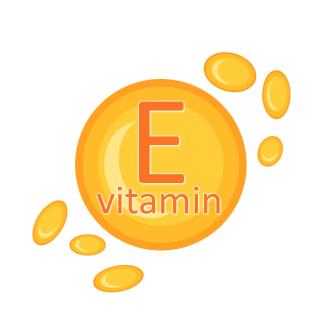
Vitamin D is a group of fat-soluble secosteroids responsible for increasing the absorption of calcium, magnesium, and phosphate, and multiple other biological effects. It is crucial for the maintenance of healthy bones and teeth, supports the immune system, brain, and nervous system, regulates insulin levels, and supports lung function and cardiovascular health.
Types of Vitamin D
Vitamin D is not just a single compound but rather a family of related compounds. The two main forms are:
- Vitamin D2 (Ergocalciferol):
- Found in plant-based foods and fungi (like mushrooms), vitamin D2 is synthesized through the ultraviolet irradiation of ergosterol, a compound found in plants and yeast.
- Ergocalciferol is typically used in fortified foods and some supplements.
- Vitamin D3 (Cholecalciferol):
- Produced by the skin when exposed to sunlight, specifically UVB radiation, vitamin D3 is also found in animal-based foods like fatty fish, liver, eggs, and fortified foods.
- Cholecalciferol is the more potent and effective form of vitamin D in raising and maintaining vitamin D levels in the blood.
Vitamin D2 vs. Vitamin D3: Key Differences
While both forms of vitamin D are effective in raising blood levels of the vitamin, there are significant differences between them:
- Source:
- Vitamin D2 is primarily found in plant sources and fortified foods. It is not naturally present in the human body but can be consumed through diet or supplements.
- Vitamin D3 is naturally synthesized in human skin upon exposure to sunlight and is found in animal sources.
- Stability:
- Vitamin D2 is less stable when exposed to various environmental factors such as heat and light. It is also more susceptible to degradation over time.
- Vitamin D3 is more stable and has a longer shelf life in supplements and fortified foods.
- Efficacy in Raising Blood Levels:
- Vitamin D3 is more effective than vitamin D2 at raising and maintaining serum 25-hydroxyvitamin D levels, which is the marker used to measure vitamin D status in the body.
- Studies have shown that vitamin D3 is approximately twice as effective as vitamin D2 in raising blood levels of the vitamin.
- Biological Activity:
- Once absorbed, both vitamin D2 and D3 are converted by the liver into 25-hydroxyvitamin D (calcidiol), the storage form of vitamin D. However, vitamin D3 is more efficiently converted into the active form of vitamin D (calcitriol) by the kidneys.
- Calcitriol, the active form, plays a crucial role in calcium absorption and bone health.
- Health Implications:
- Vitamin D3 is preferred in supplements due to its higher potency and efficacy. It is better at supporting bone health, immune function, and overall health compared to vitamin D2.
Biological Functions of Vitamin D3
Vitamin D3 plays several critical roles in the body:
- Calcium and Phosphorus Regulation:
- Vitamin D3 enhances the absorption of calcium and phosphorus from the gut, which is essential for the formation and maintenance of strong bones and teeth.
- It regulates calcium levels in the blood by promoting calcium absorption in the intestines, reabsorption in the kidneys, and mobilization from bones.
- Bone Health:
- Adequate levels of vitamin D3 are necessary to prevent rickets in children, a condition characterized by weak or soft bones. In adults, a deficiency can lead to osteomalacia, resulting in bone pain and muscle weakness.
- Vitamin D3, in conjunction with calcium, helps to prevent osteoporosis in older adults, reducing the risk of fractures.
- Immune System Support:
- Vitamin D3 modulates the immune system, enhancing the pathogen-fighting effects of monocytes and macrophages—white blood cells that are critical to immune defense—and decreasing inflammation.
- It is also thought to play a role in reducing the risk of chronic illnesses, such as autoimmune diseases, by maintaining a balanced immune response.
- Mood and Mental Health:
- Vitamin D3 has been linked to mood regulation and may play a role in preventing mood disorders such as depression, particularly in individuals with low exposure to sunlight (e.g., during winter months).
- It may also protect against cognitive decline and has been associated with a reduced risk of developing dementia and Alzheimer's disease.
- Cardiovascular Health:
- There is evidence to suggest that vitamin D3 may contribute to cardiovascular health by influencing blood pressure regulation, reducing inflammation, and improving endothelial function (the health of blood vessels).
- Metabolic Health:
- Vitamin D3 may affect insulin sensitivity and glucose metabolism, which is important for reducing the risk of type 2 diabetes.
- It also plays a role in reducing the risk of metabolic syndrome, a cluster of conditions that increase the risk of heart disease, stroke, and diabetes.
- Cancer Prevention:
- Some studies suggest that higher levels of vitamin D3 may be associated with a reduced risk of certain cancers, such as colorectal, breast, and prostate cancer.
- Vitamin D3’s role in regulating cell growth, apoptosis (programmed cell death), and differentiation may contribute to its potential protective effects against cancer.
Sources of Vitamin D3
Vitamin D3 can be obtained through several sources:
- Sunlight:
- The most natural way to obtain vitamin D3 is through exposure to sunlight. UVB rays from the sun trigger the synthesis of vitamin D3 in the skin.
- Factors such as geographical location, time of year, time of day, skin pigmentation, age, and sunscreen use can affect the skin’s ability to produce vitamin D3.
- Food Sources:
- Fatty Fish: Salmon, mackerel, sardines, and tuna are among the best natural sources of vitamin D3.
- Egg Yolks: Egg yolks contain small amounts of vitamin D3.
- Liver: Beef liver is another source of vitamin D3.
- Fortified Foods: Many foods, such as milk, orange juice, cereals, and plant-based milk alternatives, are fortified with vitamin D3.
- Supplements:
- Vitamin D3 supplements are widely available in various forms, including capsules, tablets, softgels, and drops. These supplements are particularly useful for individuals who have limited sun exposure or dietary intake of vitamin D3.
- Dosages can vary, so it’s important to consult with a healthcare provider to determine the appropriate amount based on individual needs.
Vitamin D Deficiency and Health Implications
A deficiency in vitamin D, particularly vitamin D3, can have widespread effects on health:
- Bone Disorders:
- Rickets: In children, severe vitamin D deficiency can lead to rickets, a condition where bones become soft and weak, leading to skeletal deformities.
- Osteomalacia: In adults, a deficiency can cause osteomalacia, characterized by bone pain and muscle weakness.
- Osteoporosis:
- Chronic low levels of vitamin D3 can contribute to osteoporosis, a condition where bones become porous and fragile, increasing the risk of fractures.
- Immune Dysfunction:
- Low levels of vitamin D3 are associated with an increased susceptibility to infections and a higher risk of autoimmune diseases such as multiple sclerosis, rheumatoid arthritis, and type 1 diabetes.
- Cardiovascular Disease:
- A deficiency in vitamin D3 may increase the risk of cardiovascular diseases, including hypertension, heart disease, and stroke.
- Mental Health Issues:
- Vitamin D3 deficiency has been linked to an increased risk of depression, mood disorders, and cognitive decline.
- Cancer Risk:
- Low levels of vitamin D3 may be associated with a higher risk of developing certain cancers, particularly colorectal cancer.
Optimal Vitamin D3 Levels
The optimal level of vitamin D in the blood is often debated, but generally, the following guidelines are recommended:
- Sufficient: 20-50 ng/mL (50-125 nmol/L)
- Insufficient: 12-20 ng/mL (30-50 nmol/L)
- Deficient: Less than 12 ng/mL (less than 30 nmol/L)
Maintaining sufficient levels of vitamin D3 is crucial for bone health, immune function, and overall well-being. Regular monitoring of vitamin D levels through blood tests can help ensure that individuals are getting enough of this essential nutrient.
In summary, while vitamin D is a general term that encompasses a group of fat-soluble vitamins, vitamin D3 is a specific form of vitamin D that is more effective in maintaining adequate vitamin D levels in the body. It plays a vital role in calcium absorption, bone health, immune support, cardiovascular health, and disease prevention. Obtaining vitamin D3 through sunlight, diet, and supplements is essential for maintaining overall health and preventing a wide range of health issues associated with vitamin D deficiency.






